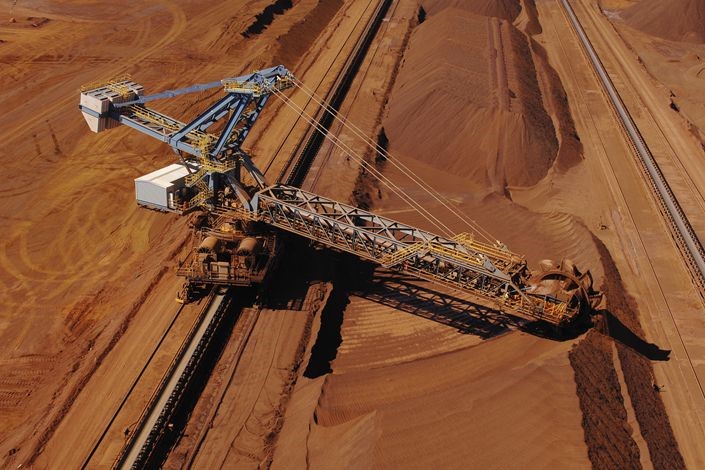Progress at last: Rio Tinto and Chinalco collaborate on $20bn Simandou Mining Project in Guinea
In the heart of the Simandou Mountains in southeastern Guinea, a monumental $20bn mining project is poised to reshape the world's metal and mining industry landscape. After a protracted 27-year journey marred by coups, legal battles, and strategic shifts, Rio Tinto, the UK-listed mining giant, is on the verge of commencing the ambitious iron ore, rail, and port development.

As the world anticipates this ground-breaking venture, the intricate interplay between geopolitics, corporate dynamics, and the pursuit of resources unfolds, promising significant implications for the aluminium sector. Ultimately, in 2024, Rio Tinto plans to begin the most complex project in its history once its state-owned Chinese partner, the Chinalco consortium, receives approval from Beijing.
Rio Tinto's chief executive (Copper), Bold Baatar, said in a statement: "There is nothing else out there of this scale and size." Though he is the HOD of the copper business, Baatar has been among the officials responsible for overseeing the feasibility of the project, taking care of its complex commercial agreements over time.
A recollection of the Project’s uneven course
Guinea's Simandou iron ore project is too massive and cost-extensive for any single miner to develop alone. Consortiums led by Rio Tinto and the Guinean government and at least seven other companies, including five from China, are partnering to build the project. The project includes the construction of two iron ore mines, a 552km railway, and a deepwater port on Guinea's Atlantic coast. The partnership structure at Simandou provides a template for a "new era in co-development" that will be necessary to source the vast volumes of metal required to build the future green economy.
"Historically, when you look at the mining industry, each mine had its own infrastructure," Baatar pointed out. At Simandou, "the capital number is so big for any single party", he clarified. Baatar concluded by saying: "The fundamental shift in the last number of years has been that the world is far more in agreement on climate change."
"The fundamental shift in the last number of years has been that the world is far more in agreement on climate change," he said.
Seven years ago, Rio Tinto faced several problems and decided to sell its stake in the Simandou project to Chinalco for up to $1.3 billion. Unfortunately, Beijing never approved the deal, and the project remained on Rio Tinto's books. However, Simandou's high-grade ore is even more attractive today, given the need to decarbonise steelmaking. This presents an excellent opportunity for Rio Tinto to potentially leverage this resource and contribute to the global effort towards sustainable steelmaking.
Sustainability in steelmaking and the challenges faced
The steelmaking process is responsible for around 8 per cent of carbon emissions internationally due to its reliance on coke. The industry is exploring alternative methods, such as direct reduced iron technology, which involves treating the ore with hydrogen and carbon monoxide, eliminating the need for coke. Notably, this shift demands high-grade iron ore, a resource becoming increasingly scarce on a large scale.
Rio Tinto plans to extract high-quality ore from Simandou, with an average iron content exceeding 65 per cent, which holds promise for cutting-edge steel production methods. This aligns with efforts to decarbonise the Chinese steel industry, which is the largest global steel producer. The global significance of this project underscores the urgency of sustainable practices in the sector. Pending Beijing's approval of Chinalco's investment, Rio Tinto anticipates commencing mine construction with the first shipment of ore in 2025 and full-scale production of 60 million tonnes annually by 2028. This output would represent approximately 5% of the global seaborne iron ore market.
Amid these ambitious plans, the geopolitical landscape adds complexity, with Guinea under military rule since 2021. Baatar remains undeterred despite political uncertainties stemming from a coup, demonstrating the industry's resilience and determination to pursue sustainable practices even in challenging environments.
"We have been operating in Guinea for over 50 years through various governments and various forms of governments. There is a strong legacy of institutional memory and commitment to honour the contracts that were set," Baatar concluded.
If you wish to learn more about the intricacies of the global aluminium sector, please have a look at AL Circle’s special report, Global Aluminium Industry Key Trends to 2030.
This news is also available on our App 'AlCircle News' Android | iOS
























